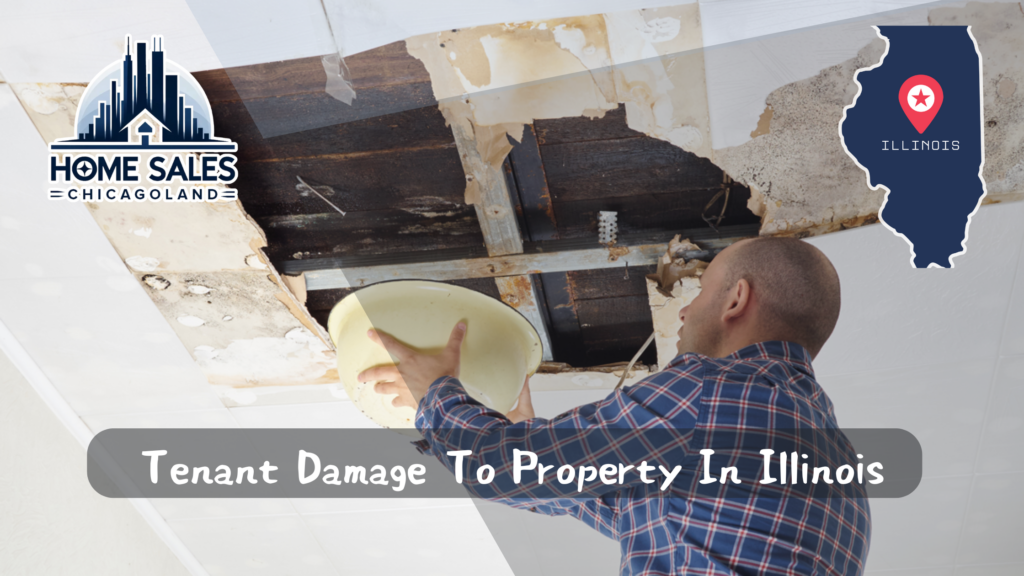
Understanding Tenant Liability For Property Damage In Illinois
As an Illinois landlord, you should know the rules and laws about who is responsible for damage to your property when a renter does it. The Illinois Security Deposit Return Act lets owners deduct repair costs from a tenant’s security deposit for damage that isn’t caused by normal wear and tear.
However, this conclusion must be backed up by proof, such as move-in and move-out inspection records. Also, 30 days after the renter moves out, the landlord has to give the new owner a detailed list of any damage done and how much it costs to fix.
Also, landlords should write down any conversations they have with renters about damage to the property in case of disagreements. You can protect your rental property and deal with any damage problems well if you know your legal duties as a landlord and renter.
We buy houses all over Illinois, including Joliet, Bolingbrook, Plainfield, Romeoville, Aurora, Crete, Matteson and Lockport. We make the process as simple and fast as possible for sellers.
Common Causes Of Property Damage By Tenants In Illinois
If you are a landlord in Illinois, you should know what kinds of things your renters usually do to damage your property. Damage done by mistake, like spills or broken appliances, is one of the most common reasons.
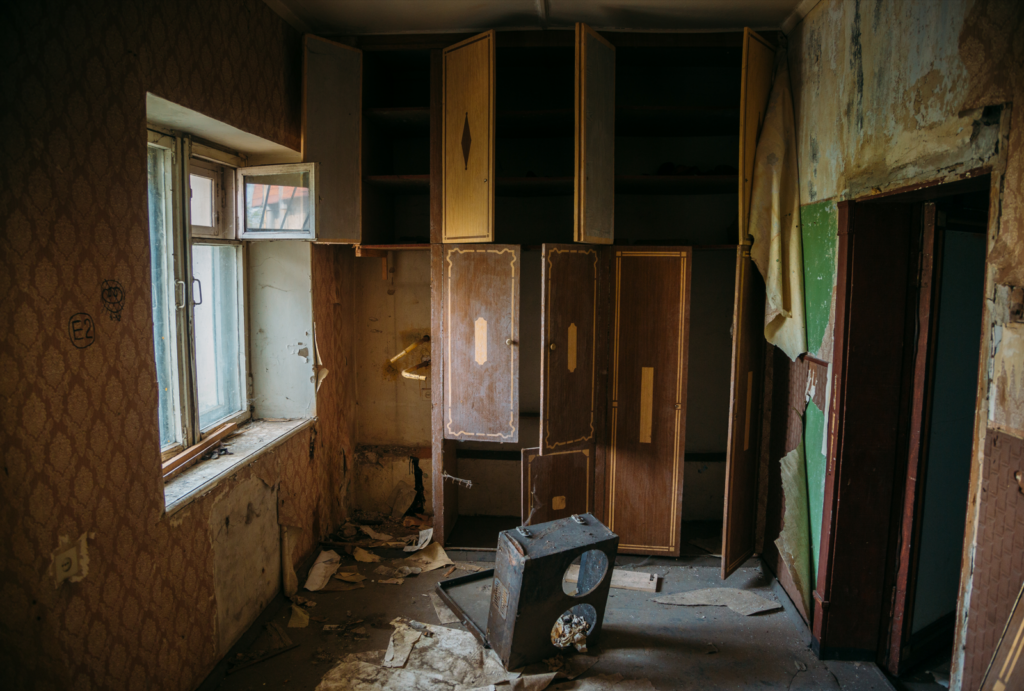
Tenants can also damage things by not reporting problems, like pipe problems that cause water damage if not fixed. Damage done intentionally, like holes in the walls or broken windows, can also happen.
Pets can also damage property if they aren’t trained or watched properly. Natural events and bad weather are also reasons why tenants might damage your property.
If landlords know these typical causes, they can better prepare for and deal with tenant damage to their rental properties.
Legal Obligations Of Tenants Regarding Property Damage In Illinois
When it comes to renter damage, Illinois landlords must know what the law says they must do. The state’s landlord-tenant laws say that renters are responsible for any damage they do to the rental property that isn’t standard wear and tear.
This includes damage done intentionally or by accident by the renter, their friends, or even their pets. It is very important to have a clause in the lease that spells out the tenant’s duty for damages and what might happen if they don’t report or fix them.
The landlord can also deduct the cost of repairs from the security fee if necessary. But it’s important to do things the right way and show proof of damage before imposing any penalties.
Not doing so could get the owner in trouble with the law.
How To Handle Tenant-induced Property Damage In Illinois
If you are a landlord in Illinois, you need to know the risks of property damage caused by tenants and how to deal with them properly. No matter how carefully you check out your tenants, accidents, and damage can still happen.
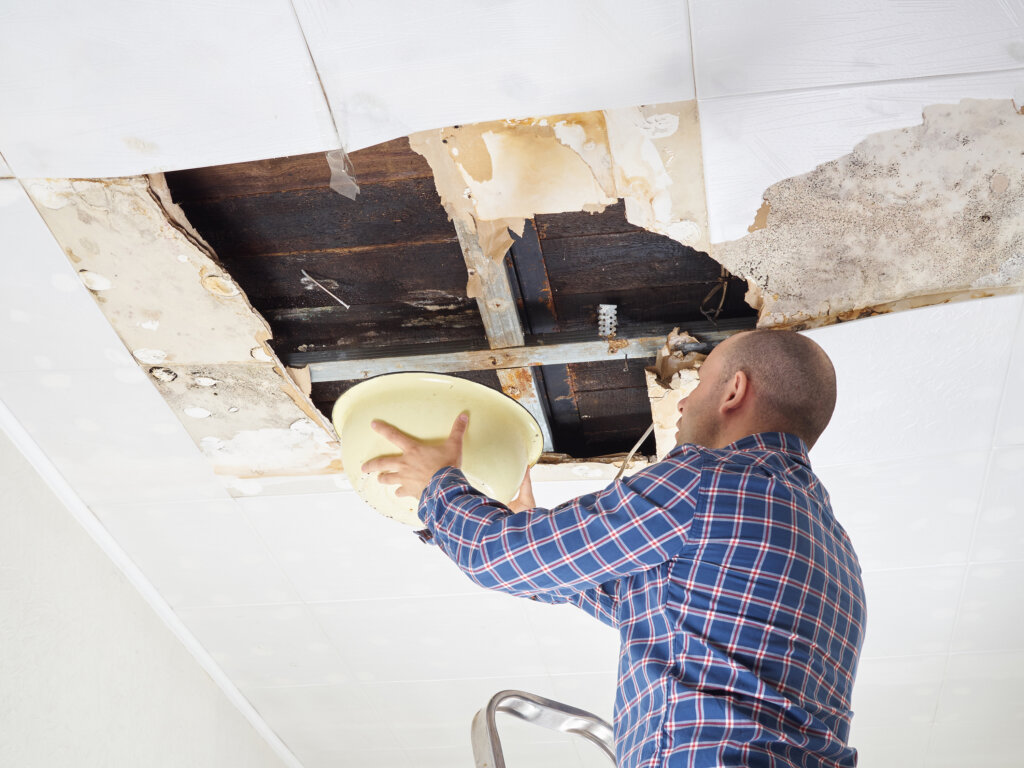
It’s important to spell out clear rules and standards for maintaining and fixing the property in the lease agreement. Furthermore, regular checks can help find any problems early on.
If a tenant damages the property, it is important to record the damage and contact the renter immediately and carefully. Depending on the extent of the damage, you may need to contact your insurance company or go to court.
Knowing your rights and duties as a landlord regarding damage caused by tenants will help protect your rental property and keep your financial losses to a minimum.
The Importance Of A Comprehensive Lease Agreement To Protect Against Tenant Damage
A detailed lease agreement is one of the most important things you can do to protect your Illinois rental property from damage caused by tenants.
This paper is a legal agreement between you and your tenants that spells out their duties while they live in your home.
A well-written lease agreement should have specific sections about damage caused by the tenant.
For example, it should say that changes or improvements can’t be made without first getting permission, that renters insurance is required, and that the tenant is responsible for any damage they cause.
By including these terms in your lease agreement, you can lower the chance that the renter will damage your property and ensure you have legal options if something goes wrong.
Steps Landlords Can Take To Prevent Tenant Damage To Rental Properties
Illinois landlords need to know what damage their tenants might do to their rental properties. This can hurt your finances and make it take longer to find new renters, which is bad for your rental business.
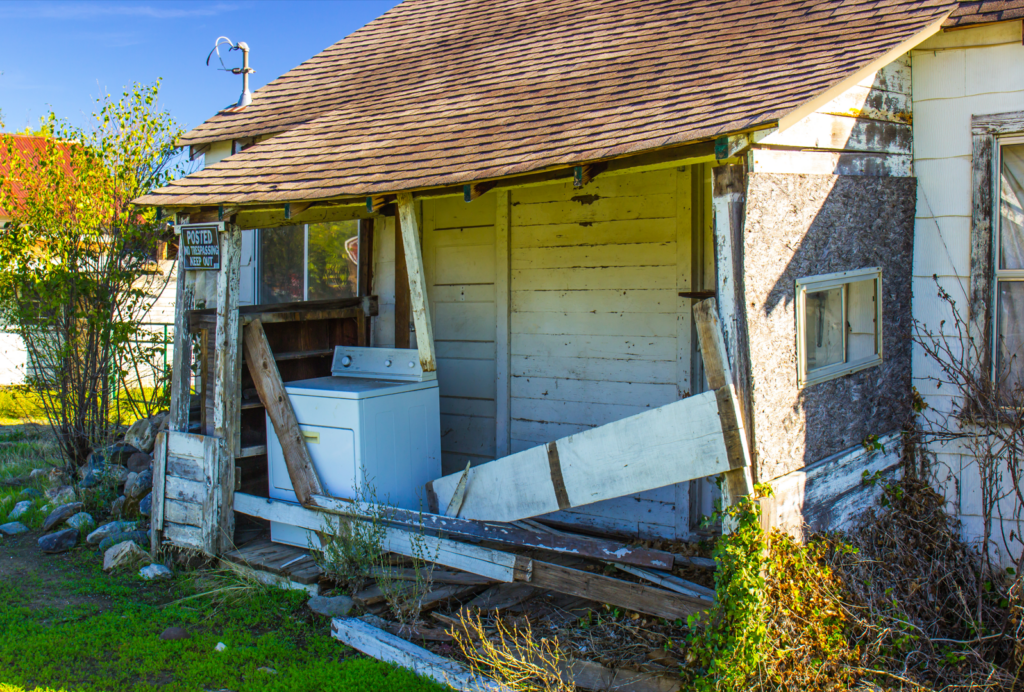
Landlords can take several steps to prevent this from happening. First, they should ensure that potential tenants are trustworthy before renting to them.
This includes checking their credit and background and calling past renters for references.
It is also important to spell out clear rules and standards in the lease agreement and to check on the property often so that any problems can be found and fixed quickly.
It’s also a good idea to give renters a list of maintenance tasks they need to do and respond quickly to any requests for repairs or complaints. With these precautions, landlords in Illinois can prevent their rental homes from being damaged by tenants who don’t need to.
Insurance Options For Landlords Dealing With Tenant Damage In Illinois
As an Illinois landlord, you must know what damage your renters might do to your rental property and how to deal with them. Getting the right insurance is an important part of protecting your property.
Most landlord insurance plans cover damage caused by tenants, such as vandalized, intentional, or accidental damage. You should carefully review and compare the different types of insurance to ensure that your policy covers rental damage well.
Some landlords may also demand that their renters have renter’s insurance as an extra safety measure. It’s important to check the property often and write down any damage you find before and after each tenant moves in.
This proof can help you file an insurance claim for damage caused by a roommate.
What Constitutes “Normal Wear And Tear” Vs. Tenant Damage In Illinois
People who rent out their homes in Illinois need to know the difference between regular wear and tear and damage caused by tenants. Normal wear and tear is when something naturally breaks down or ages over time, like paint that fades or carpet that gets worn.

Renter damage, on the other hand, is any damage that the renter does on purpose or by accident, like holes in the walls or broken windows. Landlords need to know these differences to deal with any problems that may come up during a rental properly.
You can protect and keep your rental property for future tenants by learning the difference between normal wear and tear and damage caused by tenants.
Mitigating Losses: How Landlords Can Recover From Tenant-induced Property Damage
It can be hard for landlords in Illinois to deal with the damage tenants cause to their rental properties. This can be anything from small damage that doesn’t cost much to fix to major damage that does.
To protect your rental property, it’s important for you as a landlord to know the rules and laws about damage caused by tenants. Knowing how to handle these cases well can help you limit your losses and get tenants to pay for any damage they cause.
Landlords can prove they are entitled to compensation by carefully writing down how the property looked before and after a renter moved in. It’s also important to have a thorough lease agreement that spells out the tenant’s duties for keeping the property in good shape and reporting any damage immediately.
If landlords take the right steps and action, they can recover from damage caused by tenants without losing much money.
The Role Of Security Deposits In Addressing Tenant-related Property Damage
One of the most important things you need to know about protecting your Illinois rental property is how to deal with damage caused by tenants. You can ask your renters for a security deposit to protect yourself from possible damage as a landlord.
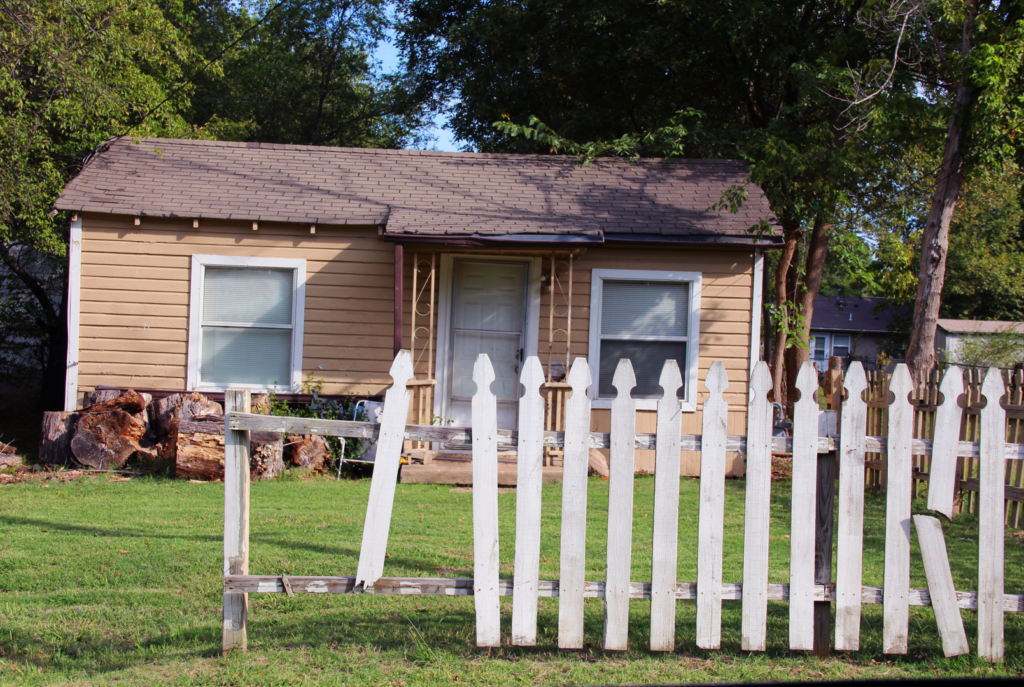
This deposit is a safety net in case of any unexpected losses during the rental period. However, the laws and rules about security fees must be clearly understood so that any possible damage claims can be handled properly.
You can protect your rental property from damage caused by tenants by keeping accurate records of the property’s state before and after each rental period and knowing your rights as a landlord.
Seeking Legal Action For Severe Or Repeated Tenant-induced Property Damage
One of the most important things you can do to protect your Illinois rental property is to know how to deal with damage caused by tenants. Small damages can usually be fixed through conversation and repairs, but big or repeated damages might need legal action.
When renters cause extensive damage, landlords should know their rights and what choices they have when they want to get paid. This could mean suing the tenant for the damage to get the money back or taking other steps to get rid of them.
Renters must keep track of all damage and, if necessary, get legal help to protect their property and their money.
Understanding The Differences Between Intentional And Accidental Tenant Damage
As an Illinois landlord, you should know the difference between damage caused by tenants on purpose and damage caused by tenants by mistake. Landlords can cause damage on purpose if they do things like vandalize or forget to pay their rent.
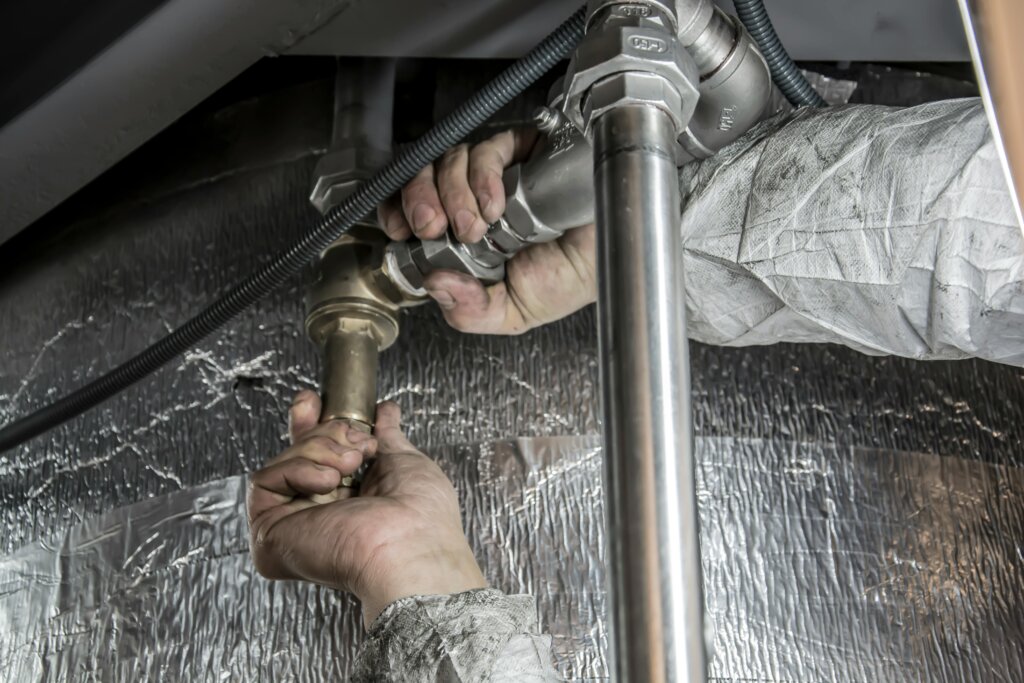
Instead, accidental damage is when harm is done by chance, like when someone spills a drink on the carpet or a storm breaks a window. Knowing the difference between these two kinds of damage can help you determine the best way to deal with each one.
It is important to keep track of any damage and let your renters know they are responsible for fixing or replacing broken things. If you know about the damage done by tenants on purpose and by accident, you can better protect your Illinois rental property and keep a good relationship with your tenants.
Dealing With Disputes Over Responsibility For Property Damage Between Tenants And Landlords
To protect your Illinois rental property, you need to know what kinds of damage tenants can do and how to fix them. However, tenants and owners often disagree about who is responsible for property damage, leading to tension and even legal problems.
When this happens, both sides must speak clearly and fully understand their rights and duties as spelled out in the lease agreement. Also, landlords might want to do regular checks and keep thorough records of how the property looks before and after each tenant moves out.
This information will help determine how bad the damage is and who should pay for it. Having a clear phrase in the lease about damage to the property can also help if there are any problems.
Overall, renters and landlords can avoid or settle disagreements about who is responsible for damage to property by talking to each other openly and taking proactive steps.
Educating Tenants On Their Responsibilities For Maintaining Rental Properties In Good Condition
As an Illinois landlord, it’s important to teach your renters how to keep the rental property in good shape.
This includes regular maintenance and cleaning, properly disposing of trash and recycling, and immediately reporting any problems or damages.
Giving your tenants clear rules and standards can help keep your property in good shape during their tenancy and avoid damage. It’s also important to stress the importance of value for the property and its features and ensure they follow all lease rules and agreements.
Teachers should teach their students about these duties so that landlords and tenants can get along better, which will protect the rental property from needless damage.
The Impact Of Negligent Or Inadequate Maintenance On Potential Tenant Damages
To protect your Illinois rental property, it’s important to know what could happen if you don’t maintain it properly. Tenants can do a lot of damage to your property if you don’t keep it in good shape.
For instance, if a roof leak isn’t fixed right away, it can cause water damage and mold growth, which can be expensive to fix and also puts renters’ health at risk. In the same way, not caring for pest problems can cause a lot of damage and make renters uncomfortable.
Landlords should check on and fix up their properties daily to prevent these problems from happening and lower the risk of damage from tenants.
Documenting Property Condition Before And After Tenancy To Prove Tenant Damages

To protect your Illinois rental property, you need to know what kinds of damage tenants can do and how to fix them. One important part of this is keeping good records of how your home looked before and after a tenant moved in.
This paperwork can be very helpful in showing that the tenant caused any damage while renting the property. Before the renter moves in, you should do a full walk-through with them and note any problems or damages you find.
To be even more helpful, you can take detailed pictures or movies and have the renter sign off on them. In the same way, doing another walkthrough after the tenant leaves and comparing it to the first paperwork can help you determine if the tenant caused any more damage.
This proof can be used in court cases or discussing how much to fix something.
Navigating The Eviction Process Due To Significant Or Unresolved Tenant-induced Property Damage
If you own a rental property in Illinois, you should know what kinds of damage tenants can do and how to deal with them. Sometimes, the damage is too big or can’t be fixed, so the tenant has to be kicked out.
The eviction process can be difficult to understand and take a lot of time, but it is necessary to protect your property and ensure you get fair pay for any damage. When trying to evict a roommate, it is important to keep track of all the damage they caused and follow the law.
If you stay aware and ready, you can successfully complete the eviction process and protect your rental property from further damage.
Considering Alternative Solutions, Such As Mediation, For Resolving Disputes Over Tenant Damages
When you argue with a tenant about damage to your Illinois rental property, you should consider other options before going to court. Mediation is one choice.
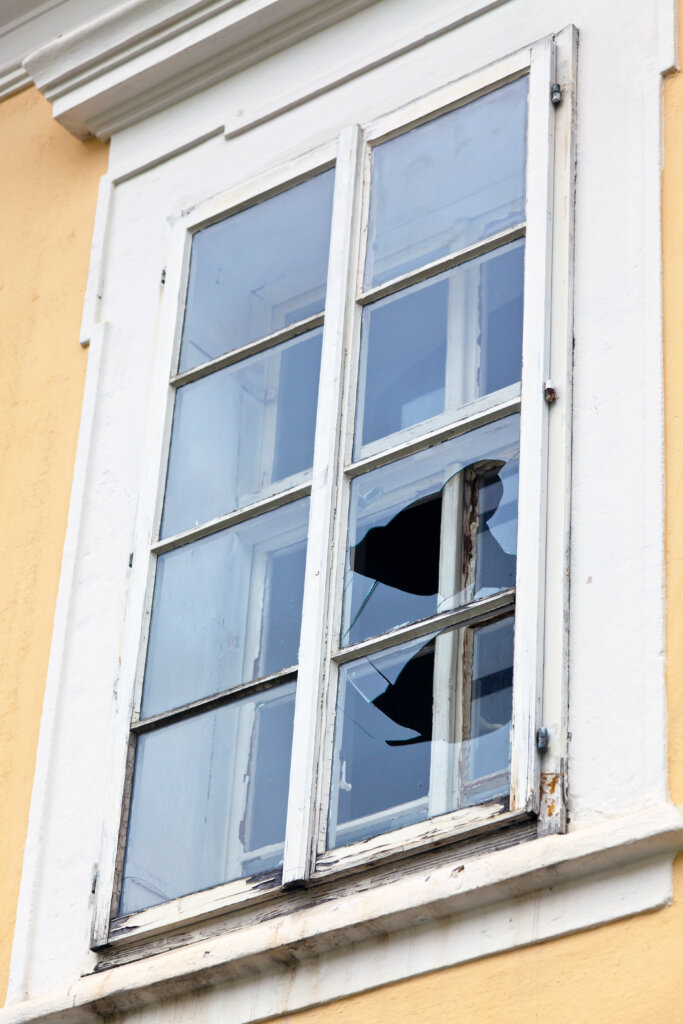
In mediation, a neutral third party helps the landlord and tenant talk to each other and come to an agreement.
Going through an official court process may take longer and cost more money than this idea. Mediation lets people work together to find a solution, which could help the landlord-tenant relationship stay strong.
Before mediation, both sides should know their rights and duties under the lease agreement and state law. If mediation works, both sides can understand it is good for everyone without going to expensive court.
Addressing Safety Concerns Resulting From Tenant-induced Property Damages
If you are a landlord in Illinois, you should know about the safety issues that could arise because of damage your tenants have done to your rental property. These losses can be as small as normal wear and tear or as big as broken windows, appliances, or the building itself.
These damages may not only make your property look worse and lower its value, but they may also be dangerous for current and future renters. You must handle these problems quickly and correctly to keep your renters’ living space safe and useful.
If you know what kind of damage tenants can do and how to fix it, you can protect your investment and the people who live in your rental home.
Being Proactive: Implementing Strategies To Minimize Risks Of Future Tenant-induced Property Damages
As an Illinois landlord, you should be cautious and implement plans to reduce the chances of future tenants damaging your property. One way to do this is to do full background checks on people who want to rent your home before letting them in.
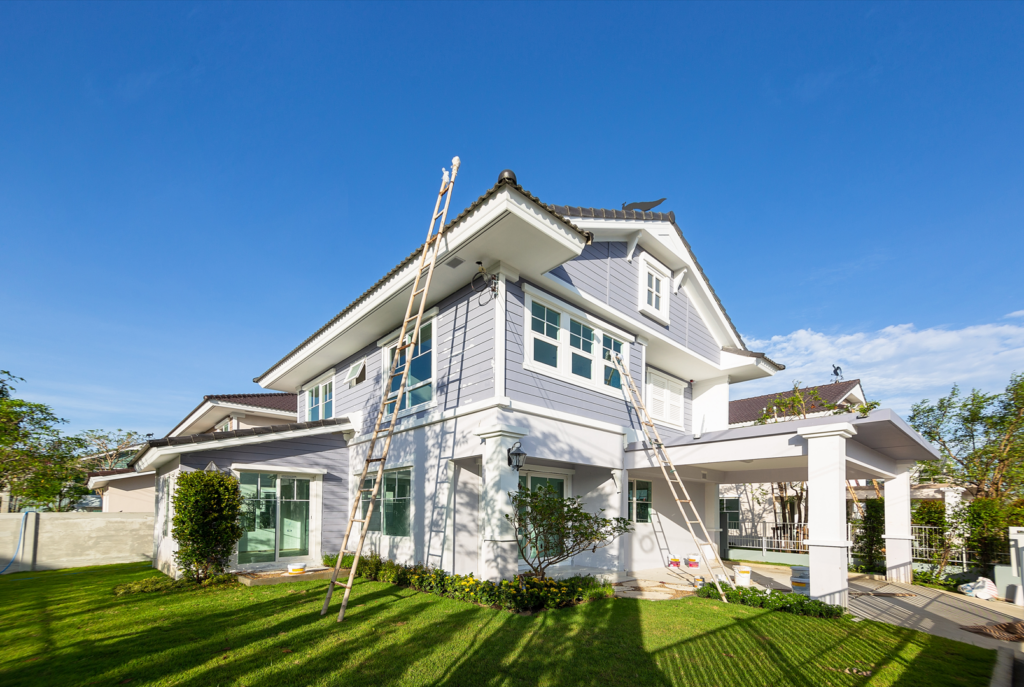
This can help you find any red flags or warning signs that might indicate a higher chance of property damage. As an extra safety measure, you could also create a thorough lease agreement that spells out exactly what the tenant is responsible for keeping the property.
You can also keep small problems from worsening by checking on the property often and taking care of any repair issues immediately. Lastly, ensuring your rental property has the right insurance can protect you financially if your renters damage it in a way you didn’t expect.
By taking these steps, you can protect your investment and reduce the chances of your property being damaged by tenants.
Can A Landlord Sue For Damages In Illinois?
One of the biggest worries for landlords in Illinois is that their renters will damage their rented property. As a landlord, you want to ensure that your property stays in good shape and that any damage your renters cause is fixed quickly.
But can an Illinois landlord sue for money if a renter doesn’t take responsibility for their actions and won’t pay for the damage they caused? Yes, that’s correct. If a renter does a lot of damage to the rental property, the landlord can go to court and get compensation.
However, steps must be taken to file a case and get paid for the harm done. Landlords in Illinois need to know the rules and laws about tenant damage to protect their rental properties and deal with any cases that might come up.
Get An Offer Today, Sell In A Matter Of Days
Resources To Help Sell Your House in Illinois
Give Us A Call Now at (773) 663-4505
If you need to Sell your house fast in Illinois, we promise to make you a fair, no-obligation, no-hassle offer. Take it or leave it. You’ve got nothing to lose.
Do you still have questions? Calling us could be the best decision you make all week!
Call Us Now at (773) 663-4505

![Sell Your House Fast In [market_city] [market_state]](https://image-cdn.carrot.com/uploads/sites/77647/2024/03/Sell-Your-House-Fast.png)
